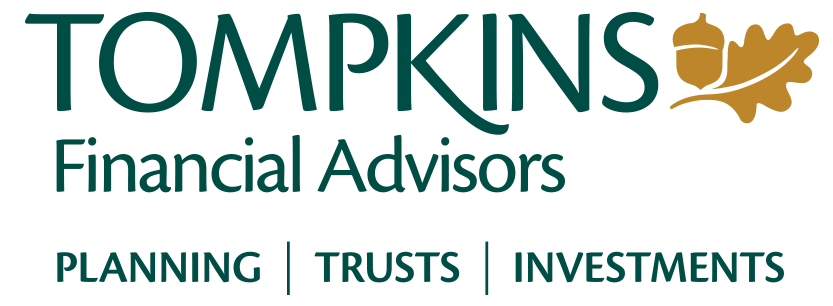

TAX RESOURCES
Click on one of the categories below to find forms, explanations, and other tools to help you manage your taxes.
IMPORTANT TAX DATES FOR INDIVIDUALS
February 1, 2021 - The deadline to send W-2 and 1099 Forms for 2020
This is the deadline for employers to send out W-2 Forms to employees and 1099 Forms to non-employees who provide services for the 2020 tax year. January 31 is the date when W-2 and 1099 forms are due. However, this upcoming tax season, January 31 falls on a Sunday, which pushes the due dates to the next business day, Monday, February 1.
February 16, 2021 - The W-4 Form Exemption Due for 2021
If you claimed an exemption from income tax withholding on the W-4 Form you gave your employer last year, you must file a new W-4 Form by this date to maintain your exemption for an additional year. February 15 is the date the W-4 Form Exemption is ordinarily due. However, this upcoming tax season, Monday, February 15, is President's Day, which pushes the due date to the next business day, Tuesday, February 16.
May 17, 2021 - Individual Income Tax Returns Due for 2020*
- 2020 individual income tax returns are due, along with any taxes owed.
* The IRS has the authority to adjust Federal tax deadlines, including April 15. Most recently, it exercised that authority in 2019 and 2020 tax years. The IRS can make the change on short notice based on its assessment of financial or economic conditions.
These links will let you download the Internal Revenue Service's most frequently requested tax forms. Clicking on one of these links will download a PDF version of the form directly from the Internal Revenue Service website.
1040
U.S. Individual Income Tax Return
Form | Instructions
1040-SR
An alternative to the Form 1040 for taxpayers who are 65 and older.
Form | Instructions
1040ES
Estimated Tax for Individuals. Estimated tax is the method used to pay tax on income that is not subject to withholding (for example, earnings from self-employment, interest, dividends, rents, or alimony).
Form & Instructions
1040X
Amended U.S. Individual Income Tax Return
Form | Instructions
Schedule A (1040)
Itemized Deductions. If you itemize, you can deduct a part of your medical and dental expenses and un-reimbursed employee business expenses, and amounts you paid for certain taxes, interest, contributions, and miscellaneous expenses. You can also deduct certain casualty and theft losses.
Form | Instructions
Schedule B (Form 1040)
Interest and Ordinary Dividends.
Form & Instructions
Schedule C (Form 1040)
Profit or Loss from Business (Sole Proprietorship)
Form | Instructions
Schedule D (Form 1040)
Capital Gains and Losses. Use this form to report the sale or exchange of a capital asset not reported on another form or schedule, gains from involuntary conversions (other than from casualty or theft) of capital assets not held for business or profit, capital gain distributions not reported directly on Form 1040, and non-business bad debts.
Form | Instructions
Schedule M (Form 990)
Making Work Pay Credit. Use Schedule M to figure the making work pay credit. This credit may give you a refund even if you do not owe tax.
Form
Schedule SE (Form 1040)
Self-Employment Tax. Use this form to figure the tax due on net earnings from self-employment. The Social Security Administration uses the information from Schedule SE to figure your benefits under the social security program.
Form | Instructions
W-4
Employee's Withholding Allowance Certificate. Complete this form so your employer can withhold the correct federal income tax from your pay.
Form & Instructions
W-2
Wage and Tax Statement. Every employer who pays for services performed by an employee, including noncash payments, must file a Form W-2 for each employee - even if the employee is related to the employer.
Form | Instructions
W-9
Request for Taxpayer Identification Number and Certification. Anyone who is required to file an information return with the IRS must obtain your correct taxpayer identification number (TIN) to report, for example, income paid to you, real estate transactions, mortgage interest you paid, acquisition or abandonment of secured property, cancellation of debt, or contributions you made to an IRA.
Form | Instructions
1099
Miscellaneous Income Statement. Every business that pays for services performed by a non-employee must file a copy of Form 1099 for each non-employee.
Form
1099-NEC
Form to report nonemployee compensation.
Form
941
Employer's Quarterly Federal Tax Return.
Form | Instructions
4868
Application for Automatic Extension of Time To File U.S. Individual Income Tax Return. Use this form to apply for 6 more months to file Form 1040, 1040A, 1040EZ, 1040NR, 1040NR-EZ, 1040-PR, or 1040-SS.
Form & Instructions
8863
Education Credits (American Opportunity and Lifetime Learning Credits). Use this form to figure and claim tax credits for qualified education expenses paid to an eligible postsecondary educational institution.
Form | Instructions
This content is developed from sources believed to be providing accurate information. The information in this material is not intended as tax or legal advice. It may not be used for the purpose of avoiding any federal tax penalties. Please consult legal or tax professionals for specific information regarding your individual situation.
These links will let you download a number of very useful tax publications from the Internal Revenue Service. Clicking on one of these links will download a PDF version of the publication directly from the Internal Revenue Service website.
Your Rights As a Taxpayer
This publication explains some of your most important rights as a taxpayer and the examination, appeal, collection, and refund processes.
Armed Forces’ Tax Guide
This publication covers the special tax situations of active members of the U.S. Armed Forces. It does not cover military pensions or veterans’ benefits or give the basic tax rules that apply to all taxpayers.
Your Appeal Rights and How To Prepare a Protest If You Don’t Agree
This Publication tells you how to appeal your tax case if you don’t agree with the Internal Revenue Service findings in an audit or other review.
Employer’s Tax Guide
A guide to taxes for employers and business owners.
Your Income Tax for Individuals
This publication covers the general rules for filing a federal income tax return. It explains the tax law to help you make sure you pay only the tax you owe and no more.
Tax Guide for Small Businesses (for individuals who use Schedule C or Schedule C-EZ)
The publication provides general information about the federal tax laws that apply to small business owners who are sole proprietors and to statutory employees. It provides information on business income, expenses, and tax credits that may help you file your income tax return.
Exemptions, Standard Deduction, and Filing Information
This publication discusses some tax rules that affect every person who may have to file a federal income tax return. It answers some basic questions: who should file; what status to use; how many exemptions to claim; and the amount of the standard deduction.
Medical and Dental Expenses (including the Health Coverage Tax Credit)
This publication explains the itemized deduction for medical and dental expenses that you claim on Schedule A (Form 1040).
Child and Dependent Care Expenses
This publication explains the tests you must meet to claim the credit for child and dependent care expenses.
Divorced or Separated Individuals
This publication explains tax rules that apply if you are divorced or separated from your spouse.
Charitable Contributions
This publication explains how to claim a deduction for your charitable contributions.
Business Expenses
This publication discusses common business expenses and explains what is and is not deductible.
Examination of Returns, Appeal Rights, and Claims for Refund
This publication discusses general rules and procedures that the IRS follows in examinations.
Individual Retirement Arrangements (IRAs)
This publication discusses traditional, Roth, and SIMPLE IRAs. It explains the rules for setting up an IRA, contributing to an IRA, transferring money or property to or from an IRA, receiving distributions from an IRA, and taking credit for contributions to an IRA.
Survivors, Executors, and Administrators
This publication is designed to help those in charge of the estate of an individual who has died. It shows them how to complete and file federal income tax returns and explains their responsibility to pay any taxes due on behalf of the deceased person.
Health Savings Accounts and Other Tax-Favored Health Plans
This publication explains health savings accounts (HSAs), medical savings accounts (Archer MSAs and Medicare Advantage MSAs), health flexible spending arrangements (FSAs), and health reimbursement arrangements (HRAs).
This content is developed from sources believed to be providing accurate information. The information in this material is not intended as tax or legal advice. It may not be used for the purpose of avoiding any federal tax penalties. Please consult legal or tax professionals for specific information regarding your individual situation.

